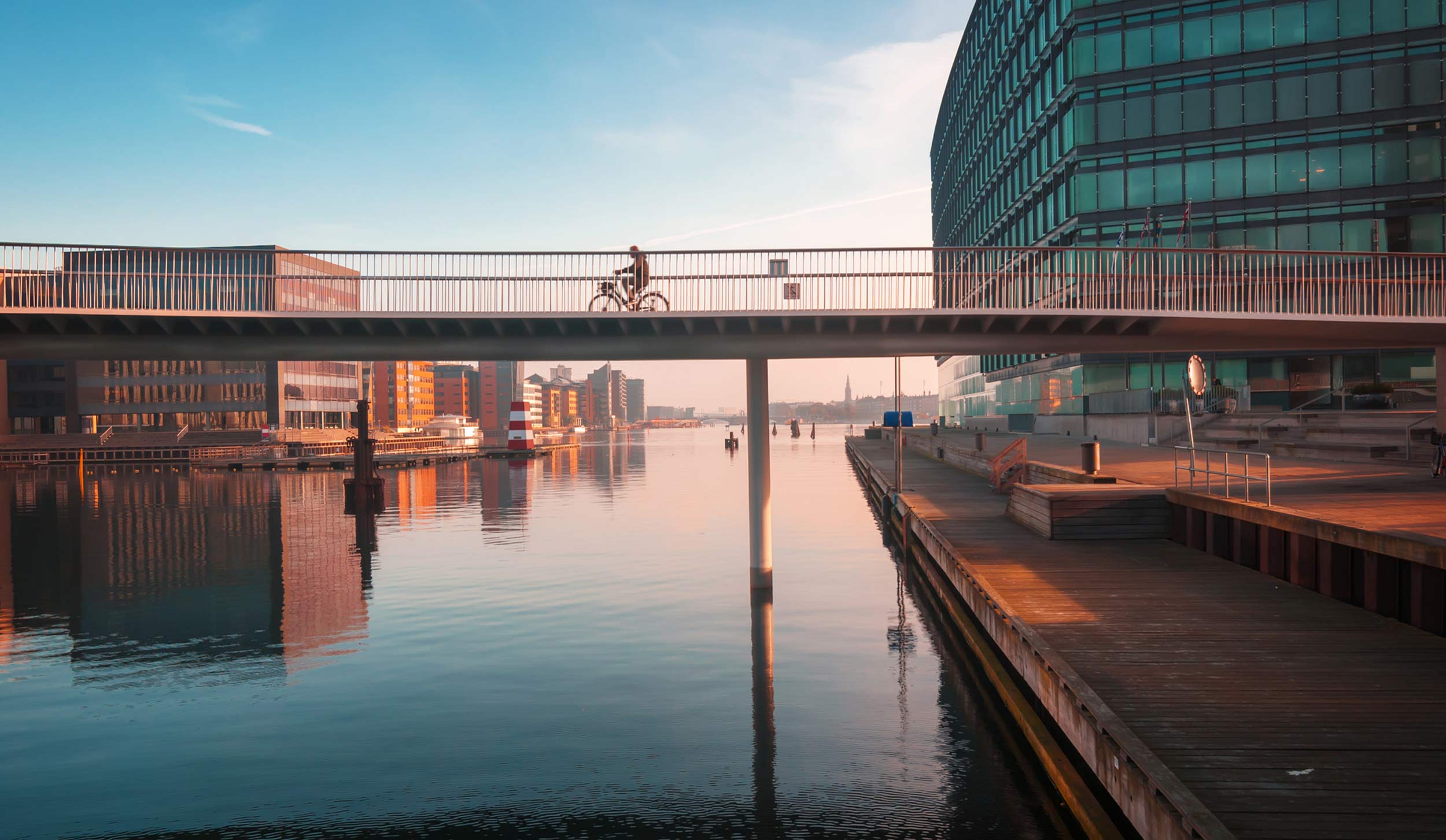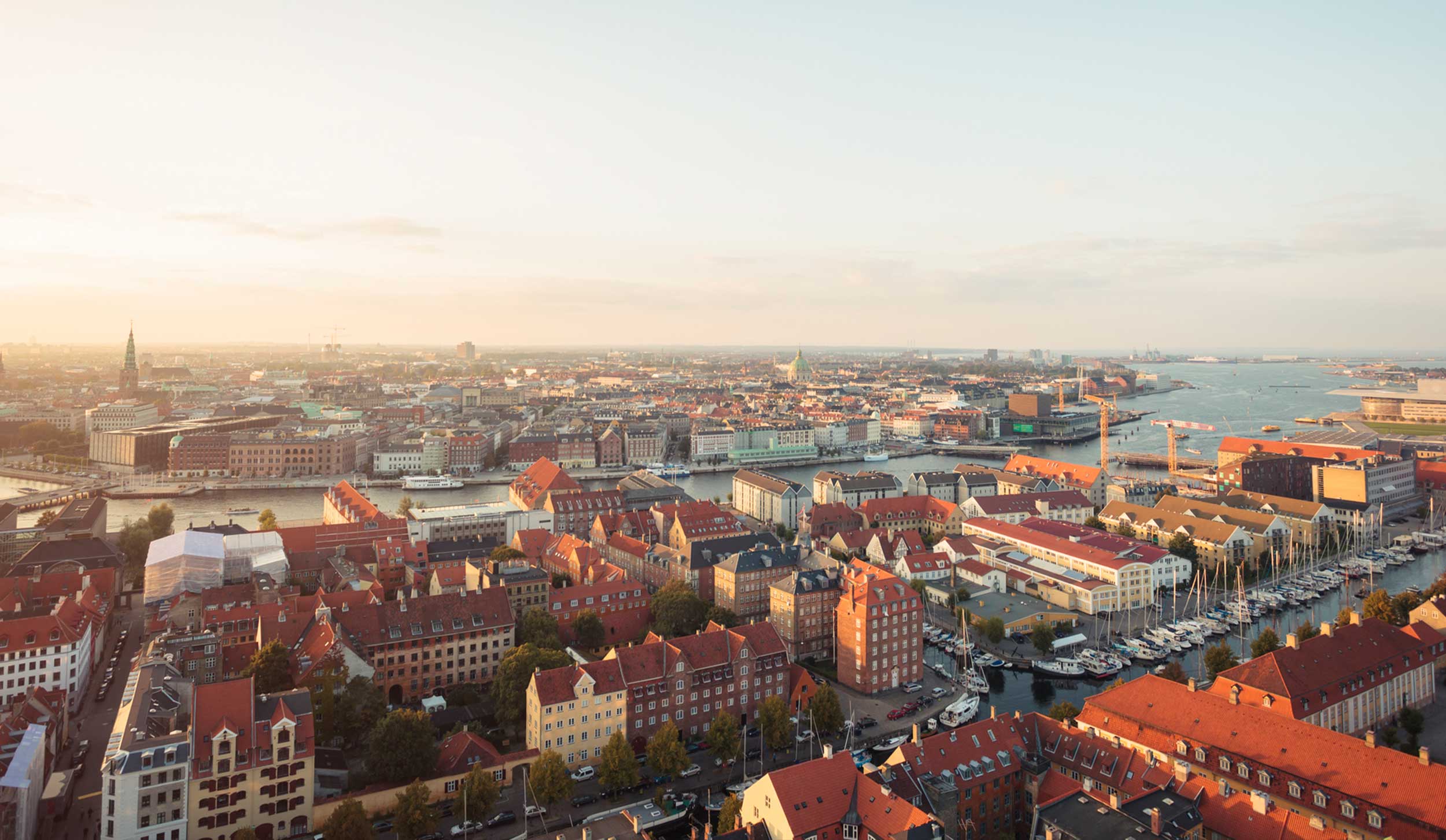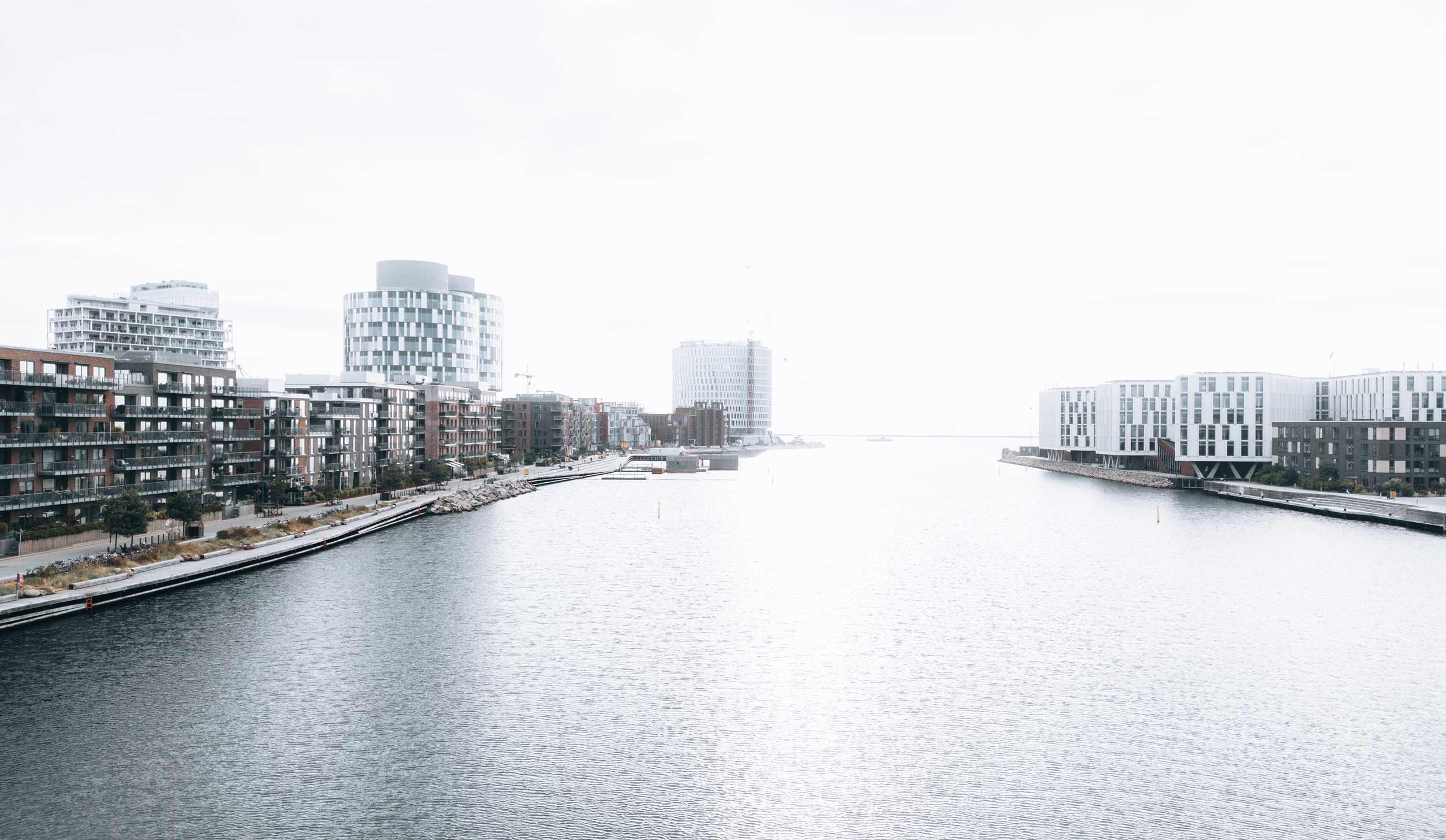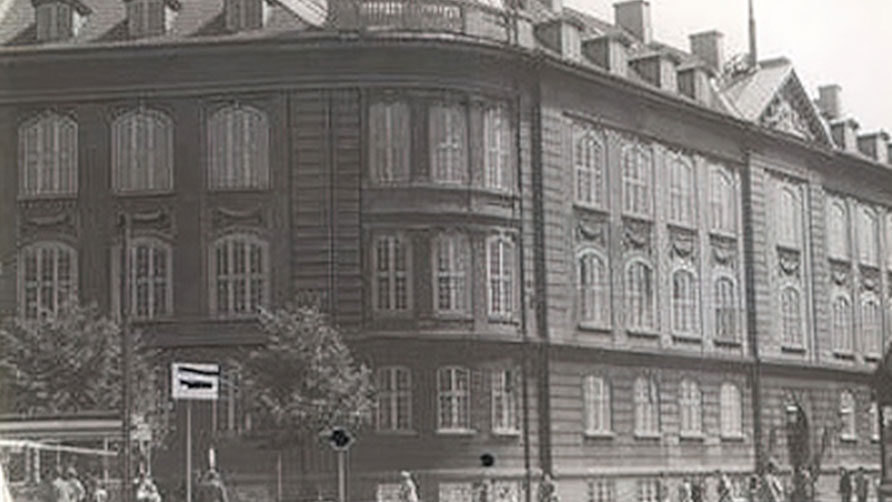About the DSEB
The Danish Society for Education and Business strives to improve education and research standards in Denmark in a global, business-oriented context.
Home / About DSEB
The Danish Society for Education and Business strives to enhance Denmark’s competences.
DSEB’s core mission is to increase value creation in Danish companies and society by backing the development of business-related educational and research competences requested by the global business community.
The role of the DSEB is to act as a catalyst by initiating and supporting specific projects focused on creating increased interaction between education, research, and enterprises in Denmark. The DSEB also allocates various awards and grants to reward extraordinary efforts and help bright young minds pursue a research career within the fields of humanities or social sciences.
Established in 1880 as the Association for the Education of Young Merchants, the DSEB was founded by two prominent business figures, Harald Fritsche, Councillor of State, and Moritz Levy, director of the National Bank. The association’s primary mission was to educate and train shop assistants for a commercial career in Denmark and abroad.
Since then, much has changed. However, the need to enhance Denmark’s capabilities is as urgent as it has always been.
DSEB timeline

Businessmen Harald Fritsche, Councillor of State, and Moritz Levy, director of the National Bank, founded the Foreningen til Unge Handelsmænds Uddannelse (the Association for the Education of Young Merchants) (FUHU) in 1880.
Fritsche drew inspiration for the association from Stettin in Poland, where such an association existed to provide systematic training for young merchants and to award travel grants, especially to countries overseas.

On 11 January 1902, the Købmandsskolen (School of Commerce) was inaugurated at the corner of Nørre Voldgade and Fiolstræde.
FUHU’s chairman Holger Petersen had secured the funding and erected the building, and, being an astute businessman, had moreover ensured that the project was marketed so effectively that his more conservative peers truly recognised the importance of educating young people, and the number of students began to grow.

In 1908, Niels Brocks Handelsskole (the Niels Brock Business School) also moved to Fiolstræde, where the Købmandsskolen was located, and from then on, the two schools remained together in terms of location: moving to Julius Thomsens Plads in 1939, to Sylows Allé in 1957, and to Nyropsgade in 1972.
The Copenhagen School of Economics and Business Administration (now Copenhagen Business School (CBS)) also resided in Fiolstræde until 1917. Until 1965, the Copenhagen School of Economics and Business Administration was operated by FUHU, which was responsible for its finances.
Even though Niels Brock and the Copenhagen School of Economics and Business Administration transitioned to state ownership in 1965, FUHU has maintained a close connection to the two schools. FUHU is currently represented on the board of CBS, and awards (now the DSEB awards) are presented at both schools.
In 1962, FUHU initiated a business diploma programme. In the 1990s, FUHU introduced master’s programmes in Denmark, serving as valuable mid-career continuing education options for business professionals. The Scandinavian International Management Institute (SIMI) provided the framework for these leadership programmes. Since then, master’s programmes spread to business colleges and universities.

In 2001, as a result of the ‘Tvindloven’, Niels Brock had to move from Fiolstræde 44, and FUHU could now move back to its original premises. Since then, the building has undergone extensive renovation.
The same year, the ‘Foreningen til Unge Handelsmænds Uddannelse’ (Association for Educating Young Businessmen) changed its name to FUHU – Vi fremmer viden (FUHU – We Promote Knowledge), and under this brand, this house of learning would once again be running continuing and further education from its new, well-equipped conference center.

In 2003, FUHU established Denmark’s Business Research Academy, DEA, and, later, the Forum for Business Education, FBE, both of which were intended to be independent knowledge centres in the fields of research, innovation, and marketplaces, as well as business education and commercial vocational training.

In 2010, DEA and FBE merged to form Denmark’s new Think Tank DEA. It expanded its focus to encompass the entire educational sector and directed attention to both the public and private sectors.
The Think Tank DEA now works to strengthen value creation and growth by improving the evidence base for the design and prioritization of early intervention, education, research, and innovation. The goal is to enhance public organizations and private companies’ access to knowledge and a high-quality, relevant workforce. This is achieved by qualifying the knowledge base for decision-makers and practitioners through evidence-based analyses, projects, and participation in public debate.

FUHU changed its name to the Danish Society for Education and Business (DSEB). The new DSEB is to act as a catalyst by initiating and supporting specific projects focused on increased interaction between education, research, and enterprises in Denmark.
The DSEB also awards a variety of awards and grants to help talented young people. This includes the prestigious Tietgen Award of DKK 500,000, which is one of the largest awards in the fields of humanities and social sciences in Scandinavia.
Information
Downloads
- DSEB Annual Report 2023
- DSEB Articles of Association
- DSEB Annual Report 2022
- DSEB Annual Report 2022
- DSEB Annual Report 2021
- DSEB Annual Report 2021
- DSEB Annual Report 2020
- DSEB Annual Report 2020
- DSEB Annual Report 2019
- DSEB Annual Report 2019
- DSEB Annual Report 2018
- DSEB Annual Report 2018
- DSEB Annual Report 2017
- DSEB Annual Report 2017
- DSEB Annual Report 2016
- DSEB Annual Report 2016
- DSEB Annual Report 2015
- DSEB Annual Report 2015
- DEA Annual Report 2015
Secretariat
In case of any questions, please contact HR or the administration:
Højdepunkter i DSEB's historie

Erhvervsfolkene etatsråd Harald Fritsche og nationalbankdirektør Moritz Levy grundlægger Foreningen for Unge Handelsmænds Uddannelse (FUHU) 1880. Inspirationen til en sådan forening havde Fritsche fået fra Stettin, hvor man dengang havde en forening, der sørgede for en systematisk undervisning af unge handelsmænd og for rejsestipendier til fremmede, især oversøiske lande.
1880
Den 11. januar 1902 kunne den nye Købmandsskole indvies af foreningen på hjørnet af Nørre Voldgade og Fiolstræde. Foreningens formand Holger Petersen havde skaffet pengene, rejst huset og som den kyndige forretningsmand han var, sørgede han for at markedsføre projektet så godt, at hans mere konservative standsfæller for alvor fik øjnene op for, hvor vigtig uddannelse af ungdommen er, og elevtallet begyndte at vokse.
1902
Siden Niels Brocks Handelsskole i 1908 overførtes til Købmandsskolen på Nørre Vold, fulgtes de to skoler ad med hensyn til de ydre rammer: Til Julius Thomsens Plads i 1939, til Sylows Allé i 1957 og til Nyropsgade i 1972. Handelshøjskolen (i dag CBS) blev udskilt i 1917, og frem til 1965 blev den drevet af FUHU, som var ansvarlig for dens økonomi. Selv om Niels Brock og Handelshøjskolen i 1965 overgik til staten, har FUHU bevaret en tæt tilknytning til de to skoler. FUHU sidder i dag i Niels Brocks Styrelse og i Handelshøjskolens Styrelsesråd. FUHU igangsatte i 1962 merkonomuddannelsen. FUHU introducerede i 1990’erne masteruddannelserne i Danmark, som gode efteruddannelsestilbud til erhvervsfolk i deres midt-karriere. Scandinavian International Management Institute (SIMI) blev rammen om disse lederuddannelser. Siden er masteruddannelserne blevet udbredt til handelshøjskoler og universiteter.
1908 - 1999
I 2001 måtte Niels Brock som følge af “Tvindloven” flytte fra Fiolstræde 44, og i stedet kunne FUHU flytte ind i sine oprindelige lokaler. Siden er fulgt en stor ombygning. Samme år skiftede Foreningen til Unge Handelsmænds Uddannelse navn til FUHU – Vi fremmer viden, og under dette brand skulle der nu igen drives efter- og videreuddannelse mv. i det nye videnhus’ konferencecenter med alle dets muligheder.
2001
I 2003 etableredes under FUHU først Danmarks ErhvervsforskningsAkademi, DEA, og siden Forum for Business Education, FBE, som begge skulle være selvstændige og uafhængige videnscentre inden for hhv. forskning, innovation og marked samt business education og de merkantile erhvervsrettede uddannelser.
2003
Erhvervsfolkene etatsråd Harald Fritsche og nationalbankdirektør Moritz Levy grundlægger Foreningen for Unge Handelsmænds Uddannelse (FUHU) 1880. Inspirationen til en sådan forening havde Fritsche fået fra Stettin, hvor man dengang havde en forening, der sørgede for en systematisk undervisning af unge handelsmænd og for rejsestipendier til fremmede, især oversøiske lande.
2010
FUHU skifter navn til Danish Society for Education and Business (DSEB). Det nye DSEB skal agere katalysator ved at igangsætte og støtte konkrete projekter, der har fokus på at skabe øget samspil mellem uddannelse og forskning og virksomhederne i Danmark. DSEB uddeler også en række priser og legater, som hjælper unge talenter på vej. Det gælder ikke mindst Tietgenprisen, som er en af de største priser inden for humaniora og samfundsvidenskab i Danmark.
2012